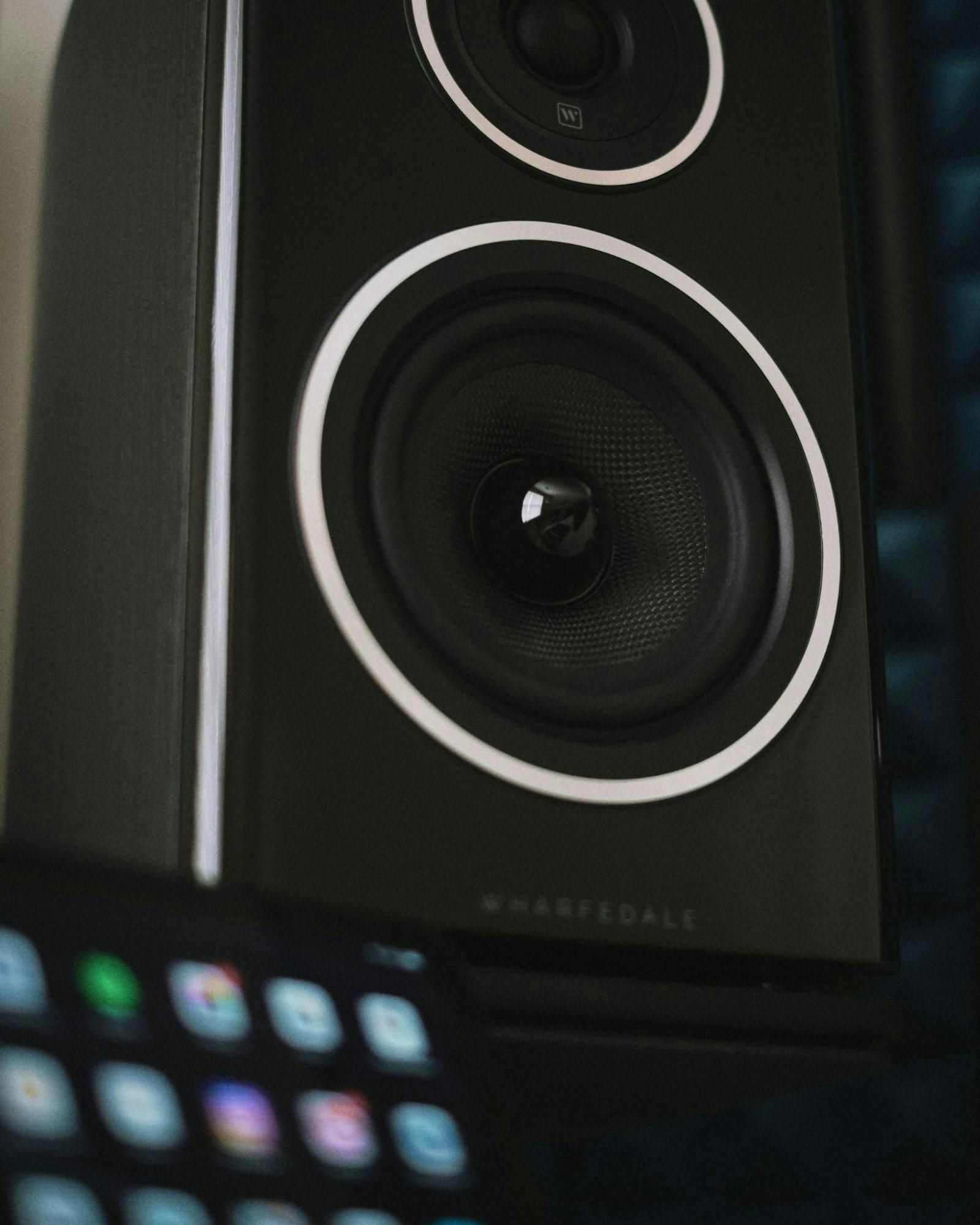Blog
Do I Have to Pay BMI, ASCAP, and SESAC?

If you play copyrighted music publicly in your business, you ordinarily have to acquire licenses to do so. This means it’s necessary to pay BMI, ASCAP, SESAC, or any other performing rights organizations (PROs) that represent songwriters and music publishers.
Falling out of compliance with music licensing requirements can mean copyright infringement resulting in costly fines and lawsuits that often lead to businesses shutting down for good. Not to mention permanent bans from using music from songwriters represented by the PRO taking legal action.
Music streaming services like Soundtrack can offer a subscription to vast libraries of hit music and all that’s needed to use or broadcast this music for a fraction of what it would cost to obtain blanket licenses from the PROs directly.
In fact, using a music streaming service for business can save you up to 90%.
To provide further insight, we reached out to Robert Carroll III, an attorney with the entertainment law firm of Phillips, Erlewine, Given & Carlin LLP in San Francisco. As a music lawyer by day and a guitarist and composer by night, he has unique expertise on the topic.
Note that none of Mr. Carroll’s statements should be construed as legal advice, as every situation is different. Furthermore, neither Mr. Carroll nor his firm expresses any opinion of Soundtrack nor any similar service.
Let’s take a closer look at why it’s important to pay BMI, ASCAP, SESAC, and other copyright owners when you play recorded or live music in your business.
Posted on May 20, 2024
Why Do I Have To Pay BMI and Other PROs To Play Music in My Business?
“Playing music in a restaurant or bar is a ‘public performance’ under U.S. copyright law,” Carroll said. “Failure to properly license this music could expose the restaurant or bar to legal liability, in part depending on the size of the establishment.”
Plus, just as you would pay for the lighting and décor of your store, coffee shop, restaurant, bar, or other business, songwriters should be paid for their contributions to the atmosphere and ambiance. “Artists spend their lives creating art, and to the extent a restaurant benefits from that art, it is only fair to share those benefits with the persons partly responsible – the artists,” he said.
License costs vary. Here are the PROs that control the licenses for the public performance of songs in the United States:
BMI (Broadcast Music, Inc)
ASCAP (American Society of Composers, Authors, and Publishers)
GMR (Global Music Rights)
In Canada, the performing rights society is SOCAN.
It’s important to remember that many of the songs by artists covered by one PRO will not be included in other PROs. If you obtain a blanket license from only one PRO, you won’t be able to play songs that aren’t under their umbrella.
This means that if you want to play fully licensed musical works without limitations on the background music you play in your retail store, restaurant, or bar, you’ll need blanket licenses for multiple PROs. This can get expensive – yet not as expensive as a lawsuit.
Carroll said that, fortunately, there are ways to navigate this tricky landscape. “There are licensing services, including law firms, that can point restaurants and bars in the right direction to protect themselves.”
Can I Just Stream Music From My Personal Account?
Personal music services and digital radio stations are meant to be used for personal use only. They are not meant to be played in any business or commercial space to entertain customers. Here are terms of use information for Spotify, Apple Music, Pandora, SiriusXM, iTunes, YouTube, Amazon Music, or TIDAL.
In fact, businesses using these services publicly in a commercial environment may be in breach of their terms of service.
Can I license live music from a PRO separately and use a B2B service to stream overhead music for my business?
If your coffee shop, restaurant, or bar venue features live music, you can obtain the required licenses for any copyrighted music that musicians play directly from the PROs. Meanwhile, you can save money on licenses for overhead or background music by using a B2B service like Soundtrack for music streaming.
The live and recorded portions of the licenses can be separated.
Particularly if you host live music one or two days per week and play overhead music the rest of the time, it can be more economically viable to pay the PROs for the live part of the license only for the number of days per week that you feature live music. Then, you can realize savings by streaming overhead music under such a licensing arrangement.
I’m a Small Business. Would the Music Industry Find Out or Care What I Play?
“You absolutely can get into hot water with a PRO. Your business can be exposed to thousands of dollars in liability for each time it plays unlicensed music. Just last month, ASCAP issued a press release providing it was going after 13 or so establishments for playing music without a license, many of which are small pubs and restaurants,” Carroll said.
Here are a couple of real-world examples:
In 2023, The Blue Moose Bar & Grill in Topeka was sued for two of the songs they played without the appropriate ASCAP licensing. In addition to being required to pay ASCAP’s legal fees on top of the money being sought in the suit, the Kansas restaurant is banned from ever playing ASCAP music again.
In another example, Tadpoles in Tampa let their BMI licensing lapse and the PRO sent undercover “music researchers” to the Florida bar. Tadpoles had to close its doors after BMI hit them with a hefty $30,000 fine.
“It's a sad and preventable story, but you hear it all the time,” Carroll said. “A rough estimate is that it costs about $1,000 a year to get proper licensure to play music at a bar/restaurant from one of the PROs (e.g., ASCAP/BMI). However, establishments that flaunt these requirements can face hundreds of thousands of dollars in exposure and be forced to shutter.”
Music License for Business Q&A
Remember, the following question-and-answer session with Carroll does not constitute legal advice. If you don’t see an answer to your question here, please contact us.
Exactly What Music Licenses Does a Business Need?
Carroll: “What they'll likely need is what is referred to as a ‘blanket license’ from one or more [PROs]. Each of these PROs has their own repertory (read: catalog) of music, so your blanket license should allow for you to publicly perform (read: play) music from this catalog at your restaurant. Depending on the size of the establishment, these licenses cost about $1,000 a year.”
What if They Host Live Bands That Play Covers?
Carroll: “You need a license from the original writer or publisher of the music, although these may be covered in the PRO blanket licenses discussed above. This is generally the responsibility of the venue, not the responsibility of the band, although venues will often try to protect themselves by contracting with the band.”
What if They Hire a DJ?
Carroll: “If a DJ is mixing a copyrighted work as part of their set at your venue, this is still likely a ‘public performance’ of that work and would likely require a public performance license discussed above for that live performance.”
What About a Jukebox?
Carroll: “Jukeboxes are subject to set license fees, where traditionally establishments pay a licensing fee per jukebox.”
What About Karaoke?
Carroll: “PRO blanket licenses are likely the play here – they will often cover karaoke from the PRO's repertory. There are karaoke licensing services that may be cheaper, but have smaller catalogs.”
What About a Piano Bar Where the Players Take Requests From the Audience?
Carroll: “Here again, the piano bar should probably get PRO blanket licenses. An entertainer performing at a piano and playing someone else’s songs would likely constitute a public performance.”
How to Play the Tunes Your Customers Will Love While Protecting Yourself Legally
“Every situation is different, so venue owners should seek advice specific to them,” Carroll said.
Soundtrack offers access to extensive catalogs of fully licensed music from a wide range of genres, giving you freedom to curate playlists that perfectly complement your business and your customers – all under one subscription.
Plus, you’ll never have to worry about being sued.
Ready to get started?
See how Soundtrack works for you and your business. Get our most exclusive features with a no obligation 14 day trial, unlocking everything available in Soundtrack Unlimited.





